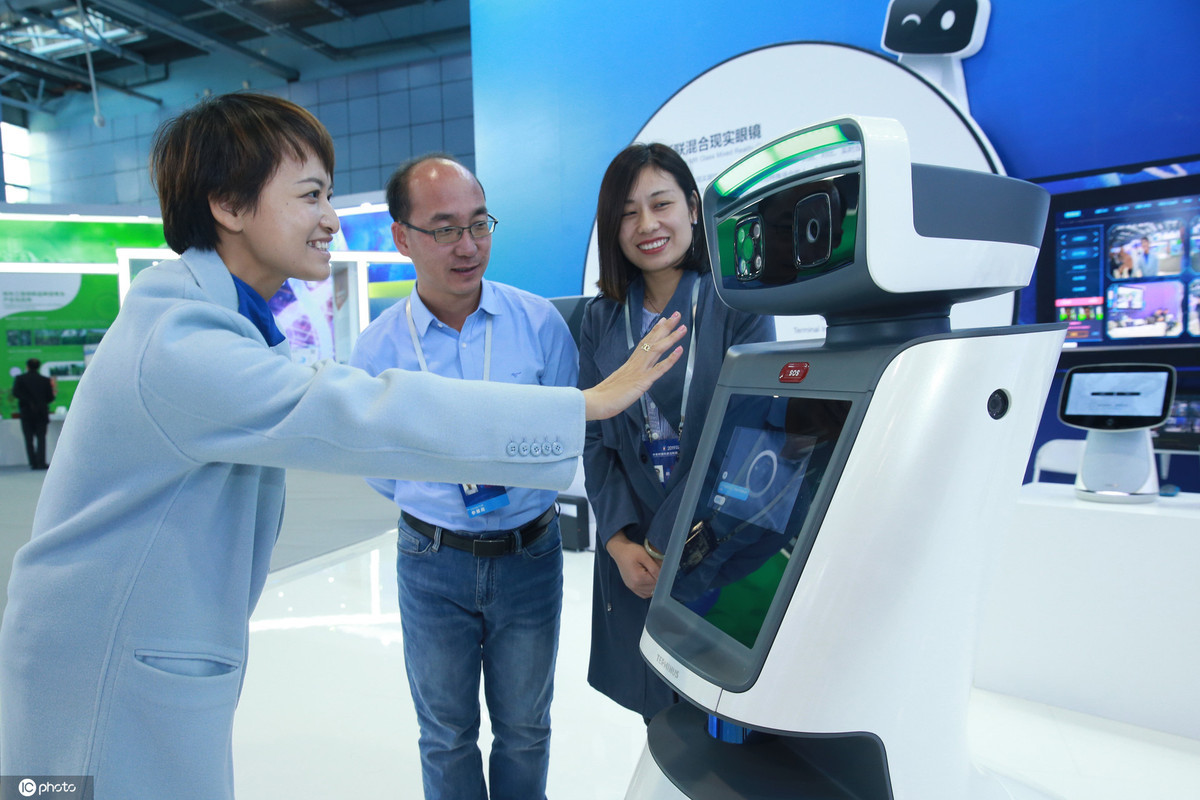Innovation crucial for AI firms, say experts
Artificial intelligence industry insiders have called for more research and innovation to spur industry development after a tech hub in Beijing offered funding of up to 30 million yuan ($4.2 million) for AI startups.

An AI robot is showed at a high-tech exhibition in Zhongguancun, Beijing on Oct 18. [Photo/IC]
On Monday, the capital's Haidian district issued a policy specifying that from Oct 28, companies and platforms in Beijing focusing on key AI technological innovation fields involving AI chips, core algorithms, operating systems and basic software can seek funding for research and development. Some cutting-edge AI innovation projects may get funding support for three consecutive years, it said.
An expert panel with four to five top specialists in the industry will be organized to review the materials submitted by companies and decide the allocation of funding, authorities said.
"We will explore ways to develop AI technologies, and encourage enterprises to create products with better performance for the next generation," said Lin Jianhua, director of Haidian district economy and information technology bureau.
As of June, China had more than 1,200 AI enterprises, second in number only to the United States in the world, according to the Ministry of Industry and Information Technology. Of them, 20 percent are in the capital's Haidian district.
Business leaders and industry insiders see the funding as a golden opportunity for AI companies but also raised concerns about its use.
Zeng Yi, an expert on artificial intelligence with the Institute of Automation of the Chinese Academy of Sciences, said some AI companies may develop rapidly in their initial stages, but ignore some high safety risks. For example, some enterprises claimed that their algorithms have surpassed humans, but it rarely said that the methods could make some mistakes that humans never made.
"AI companies have made a fortune through exaggeration, but the safety risk concerns involving internal safety and potential ethical dangers have often been ignored," he said.
How to prevent the AI companies interested in short-term profits from gaining the funds needs to be further considered along with the setting up of a special risk-assessment platform, said Zeng.
Yuan Jinhui, founder and CEO of Beijing First-Class Technology Co Ltd, a company focusing on developing an intelligent learning platform, agreed.
"China's AI industry is leading in applications compared with other countries," said Yuan. "We lack innovation in ideas since there exists a large gap between research institutes and enterprises."
"It's largely because researching core technologies needs a much longer term as the return period is the same," he said.
Sometimes AI companies might lack the driving force to develop products, he said.
The funding sponsored by Haidian government may as well stimulate companies to promote scientific research and development in the long run, according to Yuan.
Yuan said he plans to apply for the research funding to put it into developing AI chips and software development for his company.
Founded in 2016, the company started to make a profit in the past six months, said Yuan.
"We would like to recruit more talents to our group after we gain the funding."








